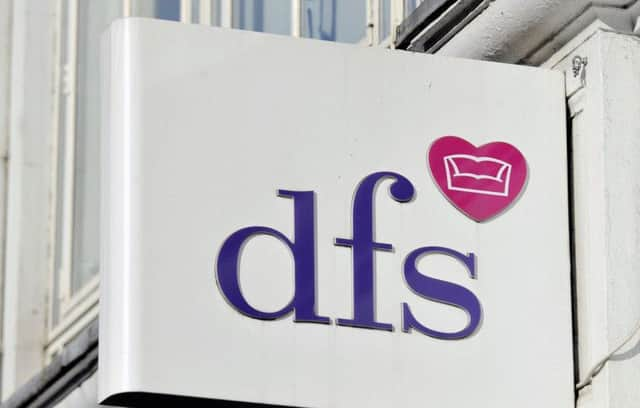Acquisition costs blamed for profit plunge at DFS


DFS said profits dived nearly 60 per cent to £7 million in the six months to 27 January, from £16.7m a year earlier, having been hit by acquisition expenses including those related to its £25m deal to acquire Sofology last year.
But the retailer highlighted a 4.3 per cent rise in revenues to £396m, which it said reflected increasing scale and “relative market leadership” thanks to the takeover.
Advertisement
Hide AdAdvertisement
Hide AdExcluding the boost from its acquisitions – including its £1.2m purchase of Multiyork’s assets, brand and stores – DFS revenues were down 3.5 per cent at £366.5m.
DFS chief executive Ian Filby said he was pleased with the performance, achieved despite what he called tough conditions across the furniture market.
However, Filby said there were signs of improvement in recent months. “We have seen a strengthening trading performance across the first half of the financial year and through February into March,” he said.
“We therefore remain confident that, despite the current challenging market conditions, the group will deliver modest growth in Ebitda (earnings before interest, taxes, depreciation and amortisation) and generate strong cashflow across this financial year, in line with our expectations.”
Neil Wilson, an analyst at ETX Capital, said DFS was cushioned from the worst of the troubles facing the market thanks to its “scale and flexibility”.
He said: “Broadly speaking, DFS is managing to handle the broader downturn in retail pretty well. The collapse of Feather & Black, Warren Evans and Multiyork, whose assets DFS has acquired, served to indicate the severe pressure on the market and the opportunity for those with enough scale to see it out.”
Wilson added that the sector was “in a bad place”, but DFS had weathered previous downturns when consumers stop splashing out on so-called “big ticket” items like home furnishings, and the failure of some of its competitors might pave the way for further growth.
“Scale, flexibility and the vertically integrated business model are all serving it well, whilst the acquisition of Sofology offers good optionality and strengthens its online/omni‑channel offering,” he said.